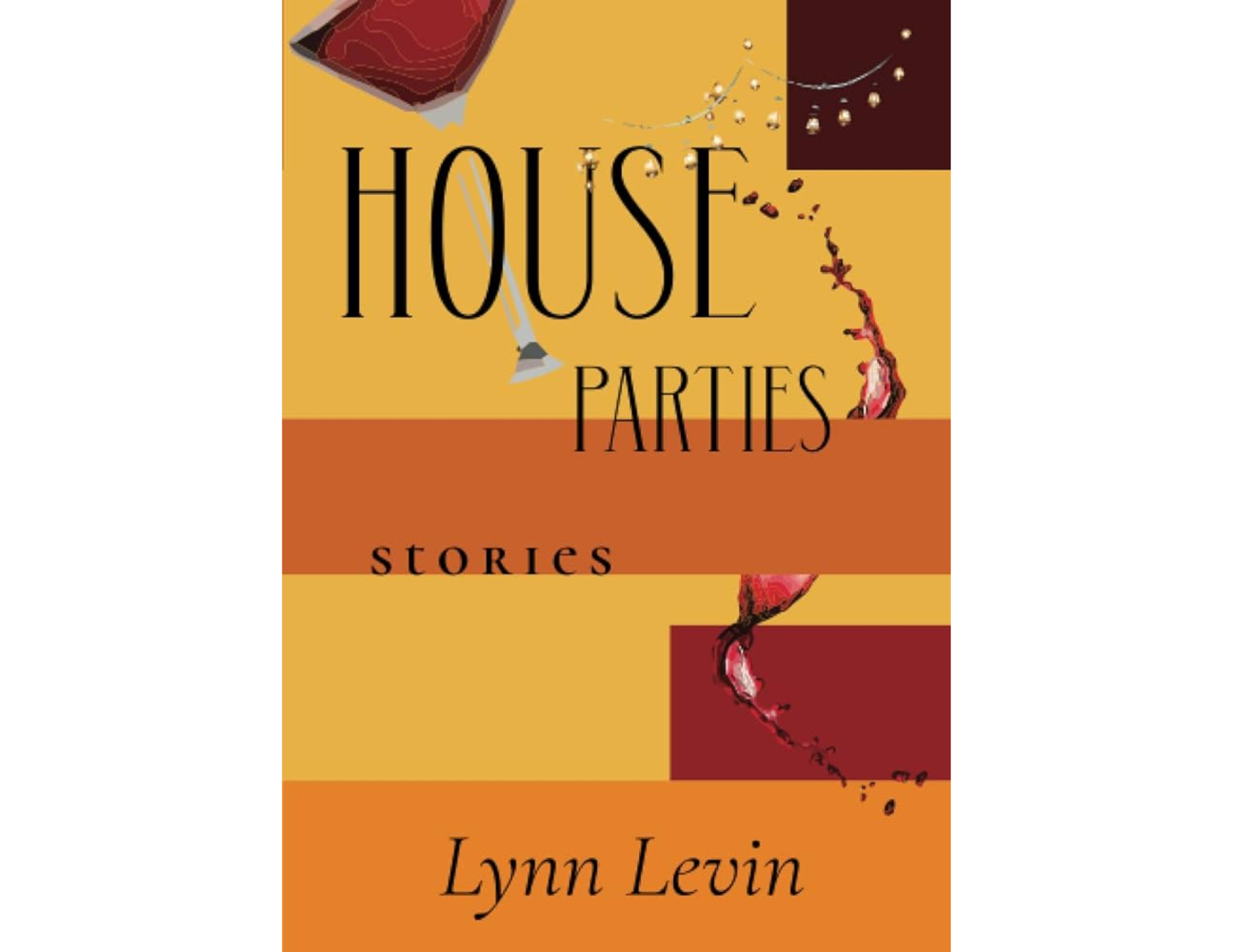Leave it to Lynn Levin to publish an enormous collection of short stories that seemingly takes five minutes to read. With House Parties, her first fiction collection, you’re through almost before you’re ready to be done. You go back and reread. The stories exert their spells all over again. They plunge you into intense, idiosyncratic universes both familiar and alien, thrust and haul you along by forces they generate: what their characters want, why they can or can’t get it, what it does or doesn’t mean, what happens when one character’s cumulonimbus of needs, wants, regrets, and foibles crashes into another character’s.
You smirk, giggle, and laugh a great deal, remembering the good ones. Levin, as she has demonstrated in her remarkable, memorable poetry—do read Miss Plastique and The Minor Virtues!—seemingly lives on irony and the eternal whacky. In House Parties, the longtime teacher at Drexel University adds one more success to an already very accomplished career.
The poet’s talent for compression, for getting the most out of every word, is well in evidence. To be sure, most of House Parties comes at us in straightforward, lucid language, or at least seeming-innocent language that pretends to be straightforward. But the aperçus and one-liners brain you with regularity: “a grumpy mood settled on me like smog,” “She was very cross with herself, whoever she was,” “His animal soul fled, fled somewhere.” These moments of potent perfection detonate constantly, like telling bombs of language. A man’s thin mustache “moved like a subtitle from which they could almost read his inner debates.” A woman in an awkward conversation feels “her words dribbling down her chin.” Another woman’s machinations sink her “deeper and deeper into dumb.” This second woman wonders whether, if she were ever caught, “would they bend her head down when they put her into a cop car?”
The setting for most of these stories is the suburbs, suburbs surrounded by “the wild,” indeed, shot through with it, and we come to feel that the suburbs are the denial of nature, much as suburban people (like all people) deny themselves to themselves. The collection itself is surrounded by the wild. Its opening sentence is “The mountain trail was steep, and the tansy scent of bear clover wafted through the April air,” and the closer is “They embraced in tender silence and stayed that way until slumber made them separate, and each slid away into the wilds of sleep.” Almost like commentators in a foreign language, animals—monkeys, ravens, dogs, deer—show up in several stories. Are they symbols, and if so, of what? Or are they vehicles without tenors, only seeming to lead to meaning? Hilariously, sadly, with misled triumph and triumphant defeat, the characters in these tales contend with the unordered, unforeseen, unsayable, the truth that we are part of the wilds against which we build our houses.
Like Levin’s poems, House Parties is a triumph of compassion. The characters are here to be seen and seen through, but they are not judged: the readers can do that if they want to. We meet data entry techs, freelance proofreaders of scientific articles, insecure high-school kids, professional violinists, high-school vice principals, “only mildly married” couples, wallpaper hangers, part-time workers at podiatrists’ offices, and rabbinical students. And we get to know them, for all their weaknesses, faults, and mistakes. A paragraph like this one illustrates the feeling:
Thirty-six and single, Jim had the face of a man seen from a distance, the face of a man in the crowd. Bartenders overlooked him. When raising his hand at meetings, he was ignored. On the plus side, because he blended in, panhandlers left him alone, and he could tailgate after others at keycard access doors. One of several data entry techs at Union, Gulliford spent his days in his cubicle, hands to the keyboard, nose to screen, pumping numbers to analysts, who sat at nicer desks on better chairs and earned enough to buy themselves condos.
We know the writer has sincere empathy for her characters because, once we know them, we have it, too. It’s hard to recover from “the face of a man seen from a distance, the face of a man in the crowd.” Jim is the invisible ordinary that bodies out the multitude, a known unknown, an ingredient that blends in, doesn’t stand out. Jim likes his work and works hard—but his superiors have better lives. We pine for him a little as he bashes his keyboard, and the analysts buy their condos. If you feel twinges of Bartleby the Scrivener, you should. Something’s going to happen; something’s going to change.
Fate equals character; fate is something people generate. It doesn’t need to begin in great emotions. “Betsy Baines of Parkside Drive bore no great animus, merely a glancing sort of animus, toward her pretty neighbor who lived a few doors down from her on Parkside,” we’re told. What an idea—that resentment and revenge need not be raging, all-encompassing. They can have shades. They need not be purple; beige sometimes will do. Yet we care, we are made to care, again and again.
You will find not just a few masterpieces here. In “The Path to Halfway Falls,” hikers are caught up in what may be a practical joke, and they, exhilarated, pass that joke and its cruelty along. “Tell Us About Your Experience,” with Jim Gulliford as protagonist, aims comically at questionnaires and takes Bartleby in a different direction. Told by a son who fears his family is breaking up, “The Husband and the Gypsy” is set in the 1970s predicament of immigrants coming to America. “One Beneath the Other,” a shortie, tells its tale in acid glee and broad strokes. “Sendings” is both a comic tour de force and a study of envy and paranoia. The title story ends the collection with a suburban party that lurches out of the partiers’ control. And, for me, “Evermay Blair” may be the best of all, a 24-page novelette in which … well, Evermay is a central figure.
How great it is that Lynn Levin has unleashed on us all these unforgettables. All her talents are on display, as are the artist’s restraint and discipline. I hope House Parties enlarges her audience ever more. And now, if you’ll excuse me, I am going back to page one.
Readers can learn more about and purchase House Parties here.
House Parties
Lynn Levin
Spuyten Duyvil Publishing
April 6, 2023
442 pages

John Timpane, the former Books Editor and Theater Critic for the Philadelphia Inquirer, is a retired English teacher and journalist living and working in New Jersey. His work has appeared in Sequoia, North of Oxford, Apiary, Painted Bride Quarterly, Schuylkill Valley Journal, Per Contra, Vocabula Review, Truthdig, and elsewhere. His latest book, a chapbook, is Buck in the Piano Room (Philadelphia: Moonstone Press).
